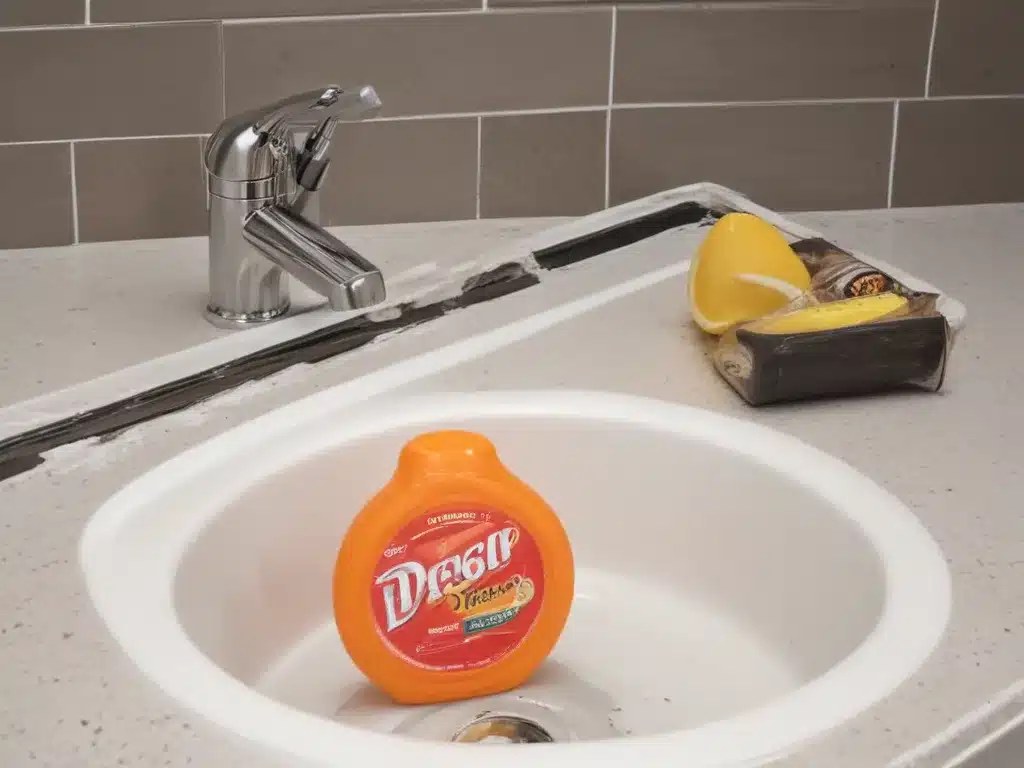Introduction
Have you ever experienced the frustration of a clogged drain in your kitchen or bathroom? The go-to solution for many people is to reach for a bottle of chemical drain cleaner, such as Drano. However, these harsh chemicals can be harmful to the environment and your plumbing system. In this article, I will introduce you to a range of natural and eco-friendly methods for unclogging drains using simple ingredients from your pantry.
The Dangers of Chemical Drain Cleaners
Chemical drain cleaners like Drano contain powerful acids and bases that can corrode pipes, harm the environment, and pose health risks if not used properly. The fumes from these products can be toxic, and accidental exposure can lead to burns or respiratory issues. Additionally, these chemicals can disrupt the delicate balance of bacteria in septic systems, causing further plumbing problems down the line.
Natural Alternatives: Better for Your Plumbing and the Planet
Fortunately, there are numerous safe and effective natural alternatives for unclogging drains that won’t harm your plumbing or the environment. These methods often involve simple ingredients that you may already have in your pantry, such as baking soda, vinegar, salt, and lemon juice.
Baking Soda and Vinegar: A Powerful Combination
One of the most popular and effective natural drain-unclogging methods is the baking soda and vinegar combination. This chemical reaction creates a fizzing action that can help break down and dislodge clogs.
To use this method, follow these steps:
- Pour 1/2 cup of baking soda down the clogged drain.
- Next, pour 1 cup of vinegar down the drain.
- Cover the drain opening with a drain plug or a damp cloth to contain the fizzing reaction.
- Allow the mixture to work for at least 15 minutes.
- Finally, flush the drain with hot water to help clear the clog.
This method is safe for most plumbing systems and can be repeated as needed until the clog is cleared.
Salt and Boiling Water: A Simple Solution
Another effective and straightforward method for unclogging drains is to use salt and boiling water. The salt helps to break down the clog, while the boiling water provides the necessary force to flush it away.
Here’s how to use this method:
- Pour 1/2 cup of salt down the clogged drain.
- Slowly pour a kettle of boiling water down the drain.
- Allow the salt and water to sit for 15-20 minutes.
- Flush the drain with hot water to help clear the clog.
This method is particularly effective for hair clogs in shower and bathtub drains.
Plunging: A Classic Approach
Sometimes, the simplest solution is the best. Plunging can be an effective way to dislodge clogs in sinks, toilets, and other drains. However, it’s important to use the right technique to avoid splashing and ensure the best results.
Here’s how to plunge a clogged drain:
- Cover the overflow opening of the sink or tub with a damp cloth or rag to create a seal.
- Fill the sink or tub with a few inches of water to create suction.
- Plunge vigorously up and down, maintaining a tight seal around the drain.
- After several minutes of plunging, remove the cloth or rag, and the clog should be dislodged.
Remember to be patient and persistent with plunging, as it may take several minutes of effort to clear a stubborn clog.
Enzyme-Based Drain Cleaners: A Greener Alternative
If natural ingredients aren’t cutting it, you might consider using an enzyme-based drain cleaner. These products use beneficial bacteria and enzymes to break down organic matter, such as hair, food particles, and soap scum, without damaging your pipes.
Enzyme-based drain cleaners are readily available at most hardware stores and are generally safer for the environment than traditional chemical drain cleaners. Always follow the product instructions carefully and allow the enzymes sufficient time to work before attempting to clear the clog.
Prevention: Maintaining Clear Drains
While unclogging drains is sometimes necessary, preventing clogs in the first place is even better. Here are some tips to help maintain clear drains:
- Install drain hair catchers in showers and tubs to prevent hair buildup.
- Avoid pouring grease, oil, or fat down drains, as these can solidify and cause clogs.
- Regularly flush drains with hot water to help keep them clear.
- Use a drain snake or zip-it tool to remove hair and debris from drains periodically.
- Consider having your drains professionally cleaned every few years to remove built-up grime and debris.
By taking preventative measures and using natural, eco-friendly methods for unclogging drains, you can keep your plumbing system in top shape while minimizing your environmental impact.
Conclusion
Ditch the Drano and embrace the power of natural ingredients from your pantry for unclogging drains. Not only are these methods safer for your plumbing and the environment, but they can also save you money and hassle in the long run. Whether you choose the baking soda and vinegar fizz, the salt and boiling water flush, or any of the other eco-friendly options, you’ll be doing your part to keep your home and our planet cleaner and healthier.







